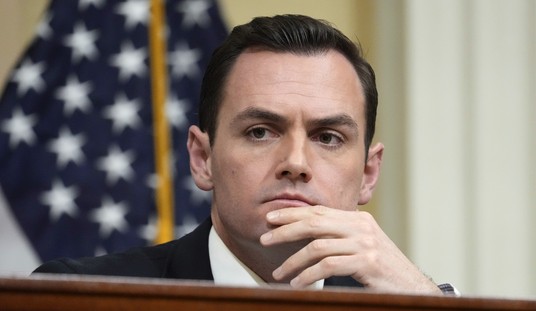Justice reform is a pretty hot topic for conservatives and libertarians right now, and for good reason. There have been major reforms in states like Texas, South Carolina, Mississippi, and Georgia over the last ten years. It’s been surprising for some typically-leftist outlets. New Republic proclaimed, “A Republican Governor Is Leading The Country’s Most Successful Prison Reform,” when talking about Georgia Governor Nathan Deal. The New York Times also seemed surprised at how quickly justice reform is spreading in Republican states:
It has been getting easier by the day for politicians to talk about fixing the nation’s broken criminal justice system. But when states in the Deep South, which have long had some of the country’s harshest penal systems, make significant sentencing and prison reforms, you know something has changed.
The reaction to justice reform covers a pretty wide range of opinion. National Review is split on it. Rich Lowry wrote in favor of justice reform in 2013, arguing it was conservative to want to fix it:
Prison should align itself with other norms. Inmates with drug and alcohol addictions should be forced to get treatment. There should be maximum openness to faith-based programs, such as those run by the splendid Christian organization Prison Fellowship. Prisoners should be encouraged to keep in contact with their families rather than cut off from them through what Bibas calls “cumbersome visiting policies and extortionate telephone rates.”
Ramesh Ponnuru is a little more skeptical, particularly on some of the details of a bill filed by Kentucky Senator Rand Paul and New Jersey Senator Cory Booker:
I’m not sure I like this method of trying to get the states to do what federal lawmakers want them to do. I’m even less sure it fits with Senator Paul’s principles. Shouldn’t he be for abolishing these grants, rather than using them to get a say in what state governments do?
The comments section of both pieces is pretty split, as well. People in favor of justice reform argue the war on drugs needs to end to help stop mass incarceration. Those against justice reform say criminals are inherently violent and are worried about radicalization inside America’s prisons. Hot Air readers are even more mixed at the idea of justice reform. One person said it was an absolute lie to claim most drug offenders barely have criminal history:
Drug possession is the easiest prosecution to make. Prosecutors regularly stack legions of criminal counts against an offender they want off the streets for garden variety criminality and will plea bargain the hard to build a solid case items like auto burglary, assault and larceny. The cop finds drugs, they arrest the perp, weigh the drugs and have an instant conviction. Mission accomplished, dirt bag off the street.
It’s not a lie, it’s the truth. The U.S. Sentencing Commission looked at the criminal history of drug offenders in the federal system. In 2012, 53% of all prisoners fell into the lowest category of criminal history. Crack cocaine and heroin were the only drugs which had more violent offenders compared to nonviolent offenders.
Mandatory minimums are a part of the reason why so many nonviolent offenders are locked up. The federal law was signed by President Ronald Reagan in 1984, with support from a Republican-controlled Senate and a Democratic House. Families Against Mandatory Minimum has a great rundown of what drug mandatory minimums look like.
The problem with mandatory minimums is it’s not always “dirt bags” who get caught up in the wide net. Mandy Martinson is a woman spending 15 years behind bars because she was dating a drug dealer. Martinson got addicted to meth because she had previously been in an abusive relationship and that was her escape. She kept doing drugs until she was arrested in 2005. Here’s the great part…Martinson turned her life around. She went to rehab, got off drugs, found a full-time job, and was set to resume her life. But mandatory minimums interrupted it. Here’s what FAMM has about the case:
At sentencing, however, Mandy’s judge balked at imposing such a long sentence…Nonetheless, the judge was forced to give Mandy a mandatory minimum of 10 years for the conspiracy and possession charges, and a mandatory five-year consecutive term for the gun charge, for a total sentence of 15 years behind bars.
Since her conviction, Mandy has successfully completed numerous additional treatment courses and remained drug free. She has been certified to operate heavy equipment, is taking a horticulture class, and is teaching a course on The Purpose Driven Life. Mandy was also selected to be a companion to prisoners on suicide watch.
It isn’t just drug offenders who are caught up in mandatory minimums. Orville Wollard is a Florida man who used to work at SeaWorld. Wollard ended up shooting a gun at his daughter’s abusive boyfriend because he wanted to scare him off. He rejected a plea deal from prosecutors because he rightly believed he was innocent and was willing to take his chances at a trial. He lost because prosecutors were able to keep his past issues with his daughter’s boyfriend out of trial. The amazing thing is both the judge and the cop who looked up Wollard’s sentencing sheet wanted mercy:
The officer who prepared Orville’s sentencing score sheet begged the government to recognize the extenuating circumstances of the case. Additionally, the investigating officer stated that he believed Orville’s daughter and the boyfriend had used this incident solely to get back at Orville for trying to keep them apart. Unfortunately, because of Florida’s “10-20-Life” gun law, Judge Donald Jacobsen had no choice after the jury’s guilty verdict but to sentence Orville to a mandatory minimum 20-year prison sentence. Judge Jacobsen said. “This [sentence] is obviously excessive…if it weren’t for the mandatory minimum…I would use my discretion and impose some separate sentence, having taken into consideration the circumstances of the event, but I think I am duty-bound to apply the law as it has been enacted by the legislature.”
There’s good news here because Florida changed the law, so people like Wollard won’t have to worry about mandatory minimums. Wollard is still locked up, but has the chance of getting out of prison at some point if Florida’s Clemency Board is willing to grant it.
Here’s the important thing to realize about these cases. Martinson and Wollard aren’t scumbags being locked up for hurting or killing someone. These are people either defending their families or dealing with personal issues where treatment is better than prison. This is why mandatory minimums don’t work. They nail people who aren’t a danger to others and probably never will be. This is why justice reform is a necessary conversation for people of all political stripes to have.
Taylor Millard is the co-founder of Vigilant Liberty Radio. He hosts Saturday Night Cigar Lounge at 9pE on Saturdays and co-hosts Right War w/Liz Harrison on Wednesday and Thursday at 11pE on FTR Radio.










Join the conversation as a VIP Member